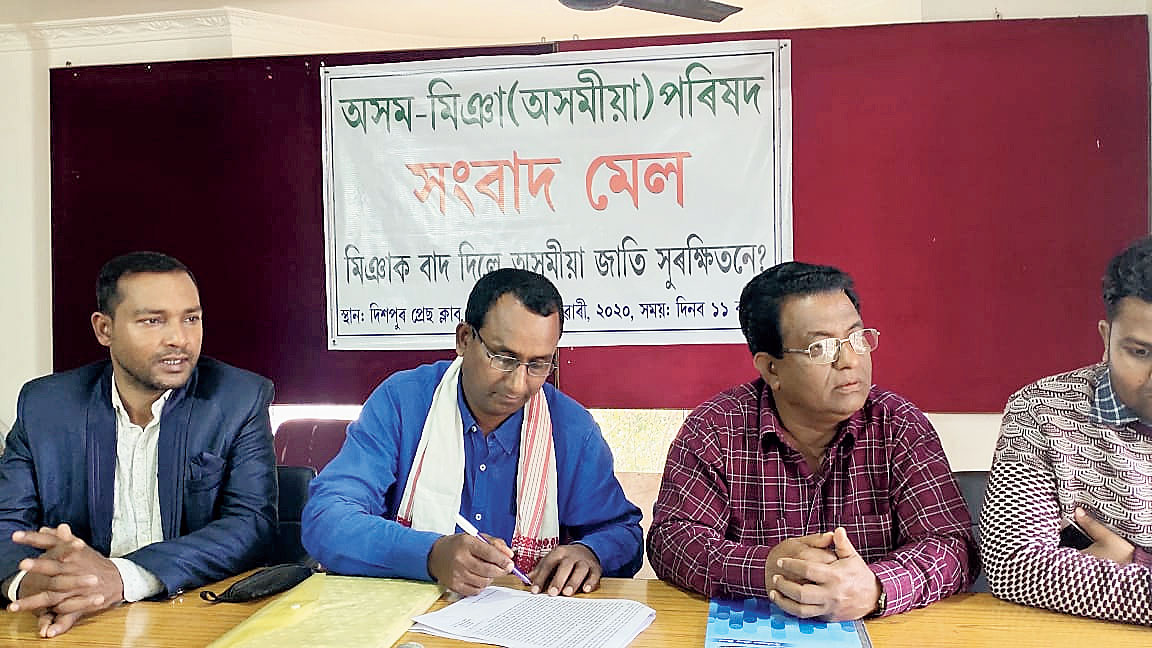The Assam Miyan Parishad on Wednesday accused the BJP of resorting to “false propaganda” to brand the community as “anti-Assamese and anti-development” and warned against dividing the state’s Muslims.
Pointing out that 24 Miyan MLAs had rescued the Assam province of British India in 1946 by resisting the Cabinet Mission’s plan of grouping Assam with Pakistan, Parishad president Miyan Giasuddin Ahmed Hazarika said, “The BJP-led governments at the Centre and in Assam have been diluting the glorious past of the Miyans and their contribution to the building of present Assam... the BJP is resorting to false propaganda to brand the Miyans as anti-Assamese and anti-development.”
Hazarika’s criticism came in response to the Assam government’s announcement of creating a corporation to carry out a socio-economic census of the ethnic Muslim communities of Desi, Goria, Moria and Jolha for their development.
He said there was no division in the Miyan community. “All those who practise Islam belong to the greater Miyan community. The BJP’s arbitrary division of the Muslims as Desi, Goria, Moria, Jolha and Miyan is condemnable and against the sentiment of Assamese nationalism.”
He said the Miyans of Assam speak different dialects because of geographical variance. “No Miyan speaks Bengali language as assumed by the BJP. Our mother tongue is Assamese. The Goria, Moria, Desi and Jolha speak the same Miyan dialects besides accepting Assamese as their mother tongue. How then are we different?” he asked.
Asking state education minister Himanta Biswa Sarma and Assam State Minority Welfare Board chairman Muminul Aowal to revisit history, Hazarika said, “Do not divide the people of Assam by diluting history. It will further break the harmonious communal fabric and coexistence in the state.”
He said all the Miyans of the state were ethnic and deserved indigenous status and equal privileges. “We challenge the state government to identify who the Miyan and Gorias are,” he added.
Former director of the Omeo Kumar Das Institute of Social Change and Development, Guwahati, Bhupen Sarma, said, “There were a good number of MLAs from the Muslim community in 1946 that strengthened the Bordoloi regime to resist the grouping plan. But it will be wrong to add communal perspective to that historic resistance. Those resisting MLAs of the Congress were influenced by Assamese sentiment. It is necessary to resist the present form of communal politics but it must be democratic and no comment should be counter-communal.”











